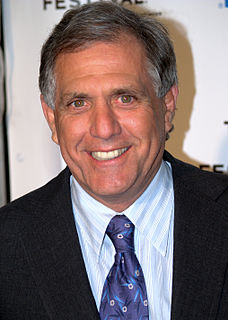A Quote by Leslie Moonves
News, by and large, has been the purest of all the television mediums, or at least we've tried to keep it that way, and there constantly is the argument about the separation between church and state.
Related Quotes
It is true that traditional Christianity is losing some of its appeal among Americans, but that is a religious, not political, matter. It is worth remembering that the Jeffersonian 'wall of separation' between church and state has always been intended to protect the church from the state as much as the state from the church.
Everyone in the United States is so intense about maintaining a separation between Church and State when the real concern should be about keeping a separation between Corporations and State--because in America (and most of the rest of the Western World, for that matter) economics is the real religion.
The decision for complete religious freedom and for separation of church and state in the eyes of the rest of the world was perhaps the most important decision reached in the New World. Everywhere in the western world of the 18th century, church and state were one; and everywhere the state maintained an established church and tried to force conformity to its dogma.
Government control of the economy, no matter in whose behalf, has been the source of all the evils in our industrial society -- and the solution is laissez-faire capitalism, i.e., the abolition of any and all forms of intervention in production and trade, the separation of State and Economics, in the same way and for the same reasons as the separation of Church and State.
Thanks in large measure to the ACLU, the belief that there is a wall of separation between faith and state, not just church and state, is endemic. The exercise of religious faith in the public square is not prohibited; only the federal imposition of a particular faith. Hardly anyone any longer knows the difference.
Ultimately, the court is heading to a doctrine of 'separation of campaign and state.' This doctrine, like separation of church and state or separation of military and civilian authority, is not explicit in the Constitution but flows naturally from its structure and commitment to freedom and democracy.
The separation of church and state is necessary partly because if religion is good then the state shouldn't interfere with the religious vision or with the religious prophet. There must be a realm of truth beyond political competence, that's why there must be a separation of churches, but if religion is bad and a bad religion is one that gives an ultimate sanctity to some particular cause. Then religion mustn't interfere with the state - so one of the basic Democratic principles as we know it in America is the separation of church and state.



































